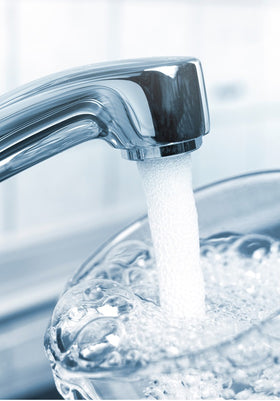
Should You Turn Off Your Countertop Water Dispenser at Night?
Ever felt guilty about leaving your countertop water dispenser on all night, like it’s running a secret marathon on your electricity bill? Short answer: Turning it off can save energy, but it’s not always necessary. This Comprehensive Guide to Countertop Water Dispensers spills the truth—costs, convenience, and smart energy hacks! Keep reading!
Introduction: Understanding Your Dispenser's Energy Use
Ever wondered if your countertop water dispenser is sneakily adding to your electricity bill overnight? These handy appliances provide instant hot and cold water, but they also consume power around the clock. Should you turn yours off at night? Let’s explore the facts and find the best approach.
Factors Affecting Energy Consumption
Several factors influence how much power your dispenser uses, including its design, energy efficiency, and how often you use it. Understanding these elements helps in making an informed decision.
Type of Dispenser (Hot/Cold vs. Filtered)
- Hot and Cold Dispensers: Constantly maintain water at set temperatures, leading to higher energy use.
- Filtered Dispensers: Often do not heat or chill water, consuming less electricity.
- Bottled Dispensers: May require additional energy if they have built-in cooling or heating elements.
Energy Efficiency Ratings
Check if your dispenser has an Energy Star rating or eco-friendly features. Some models have insulated tanks or low-power standby modes, significantly reducing energy use.
Pros and Cons of Turning Off at Night
Turning off your water dispenser can save energy, but it’s not always the best option. Let's break down the pros and cons.
Potential Energy Savings
- Cutting power overnight could reduce energy consumption by up to 15% annually.
- Households could save £30–£50 per year based on UK energy rates.
Impact on Water Temperature
- Hot water may take 2–5 minutes to reheat in the morning.
- Cold water may be slightly warmer but usually cools down quickly once restarted.
Wear and Tear Considerations
- Some models are designed to run continuously, and frequent power cycling may shorten their lifespan.
- Check the manufacturer’s guidelines before deciding.
Recommendations for Different Dispenser Types
Different dispensers respond differently to being turned off. Here’s what to consider.
Hot and Cold Dispensers
- Best left on if used frequently throughout the day.
- Consider smart plugs to turn off overnight and restart before use.
Filtered Dispensers
- Usually safe to turn off overnight, as they don’t require heating or cooling.
- Ensure the filter remains clean to prevent stagnation.
Bottled Dispensers
- If they include heating/cooling functions, follow the same advice as hot/cold dispensers.
- If using only at room temperature, they can stay off when not needed.
Energy-Saving Tips for Nighttime
You don’t always have to switch off your dispenser completely. Here are smarter ways to cut energy use.
Setting Timers (If Applicable)
- Use plug-in timers to turn off your dispenser at night and restart it before morning.
- Smart plugs allow remote control via smartphone apps.
Using Standby Modes
- Some modern dispensers have eco modes that reduce energy usage without fully shutting down.
- These modes keep water warm/cool without excessive electricity use.
Considerations for Different Environments
Where you use your dispenser affects whether turning it off is practical.
Home vs. Office Use
- Homes: More flexibility to turn off overnight.
- Offices: May need to stay on for consistent access, but weekend shutdowns could save energy.
Climate and Ambient Temperature
- Cooler climates mean less energy needed to maintain cold water.
- Hotter environments might require keeping it on for refreshing cold water access.
Addressing Common Concerns
Still unsure? Let’s tackle some common worries.
Impact on Water Quality
- Leaving it off overnight won’t affect water quality if the system is clean.
- Regularly change filters and flush the system before first use in the morning.
Startup Time in the Morning
- Expect a 2–5 minute wait for hot water, while cold water may take longer to chill.
- A small inconvenience for potential savings in the long run.
Conclusion: Optimising Your Dispenser's Energy Use
So, should you turn off your countertop water dispenser at night? If you want to save energy, yes—but only if your model allows it.
For the best balance, consider using timers, standby modes, or smart plugs to reduce consumption while keeping convenience. Always check your manufacturer’s recommendations, and if in doubt, test it for a month to see if the savings are worth it for you!



Leave a comment